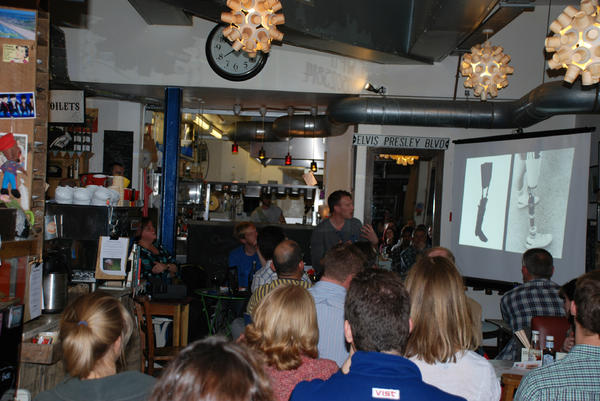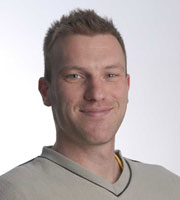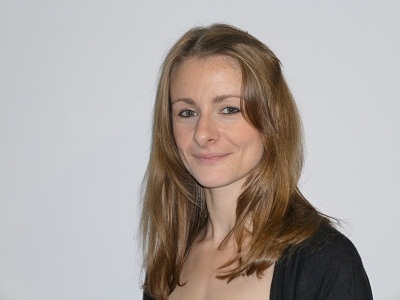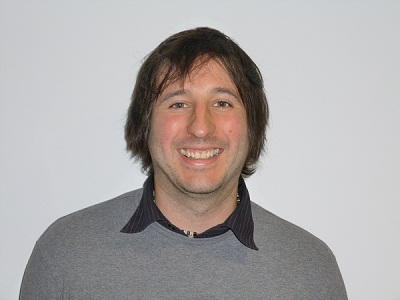I’m pleased to announce new workshops for January 2013. All bookings should be made via gsbookings@bournemouth.ac.uk
PGR induction (Repeat workshop)
Outline: Introduction to BU’s academic and professional support for your research degree. The session will also include an introduction to the Research Development Framework and how to map your personal development
Date: Wednesday 9 January 2013
Time: 10:00 – 13:00
Room: PG22 – Poole House – Talbot Campus
Facilitator: Graduate School
Booking: gsbookings@bournemouth.ac.uk
NVivo Training – please note change of date
Outline: The morning session will provide an introduction to Nvivo – why use a computer for qualitative analysis? The afternoon will look at building your database and coding your data
Date: Thursday 24 January 2013
Time: 09:00 – 17:00
Room: S102 – Studland House – Lansdowne Campus
Facilitator: Ben Meehan – External Consultant from QDATRAINING PLC
Booking: gsbookings@bournemouth.ac.uk
Finding information and Using Researcher Tools (Repeat workshop)Outline: The session will include an introduction to advanced searching skills, using citations smartly and analytical tools
Date: Wednesday 16 January 2013
Time: 10:00 – 12:00
Room: DLG31 – The Sir Michael Cobham Library – Talbot Campus
Facilitator: Emma Crowley
Booking: gsbookings@bournemouth.ac.uk
Managing your citations using Endnote and Endnote Web (Repeat workshop)
Outline: The session will include an introduction to Endnote and Endnote Web, exporting from databases, Cite While You Write tool
Date: Wednesday 16 January 2013
Time: 14:00 – 16:00
Room: DLG31 – The Sir Michael Cobham Library – Talbot Campus
Facilitator: Emma Crowley
Booking: gsbookings@bournemouth.ac.uk
Writing for Marketing
Outline: The aim of the workshop is to learn how to write for marketing purposes – useful for public engagement activities
Date: Wednesday 23 January 2013
Time: 14:00 – 16:00
Room: S102 – Studland House – Lansdowne Campus
Facilitator: Mike O’Sullivan
Booking: gsbookings@bournemouth.ac.uk
Critical Thinking
Outline: The aim of the workshop is to give you the tools to make critical use of evidence from research to inform complex judgements and decisions
Date: Wednesday 30 January 2013
Time: 09:30 – 11:30
Room: PG22 – Poole House – Lansdowne Campus
Facilitator: Dr Jenny Moon
Booking: gsbookings@bournemouth.ac.uk
The Transfer Process
Outline: The aim of the workshop is to prepare students for the process of the transfer from MPhil/PhD to PhD. All students who register for a research degree have the choice to proceed in their studies towards an MPhil award or to transfer onto a doctoral route that leads to a PhD.
Date: Wednesday 30 January 2013
Time: 13:00 – 15:00
Room: PG22 – Poole House – Talbot Campus
Facilitator: Professor Anthea Innes
Booking: gsbookings@bournemouth.ac.uk

 On 6th December at 4pm, we are planning to celebrate public engagement at Bournemouth University with a short talk from
On 6th December at 4pm, we are planning to celebrate public engagement at Bournemouth University with a short talk from  The Intellectual Property Office (IPO) launched its annual
The Intellectual Property Office (IPO) launched its annual 





















 REF Code of Practice consultation is open!
REF Code of Practice consultation is open! BU Leads AI-Driven Work Package in EU Horizon SUSHEAS Project
BU Leads AI-Driven Work Package in EU Horizon SUSHEAS Project Evidence Synthesis Centre open at Kathmandu University
Evidence Synthesis Centre open at Kathmandu University Expand Your Impact: Collaboration and Networking Workshops for Researchers
Expand Your Impact: Collaboration and Networking Workshops for Researchers ECR Funding Open Call: Research Culture & Community Grant – Apply now
ECR Funding Open Call: Research Culture & Community Grant – Apply now ECR Funding Open Call: Research Culture & Community Grant – Application Deadline Friday 12 December
ECR Funding Open Call: Research Culture & Community Grant – Application Deadline Friday 12 December MSCA Postdoctoral Fellowships 2025 Call
MSCA Postdoctoral Fellowships 2025 Call ERC Advanced Grant 2025 Webinar
ERC Advanced Grant 2025 Webinar Update on UKRO services
Update on UKRO services European research project exploring use of ‘virtual twins’ to better manage metabolic associated fatty liver disease
European research project exploring use of ‘virtual twins’ to better manage metabolic associated fatty liver disease